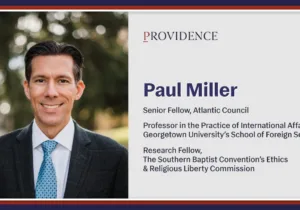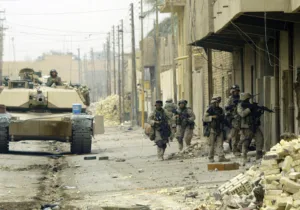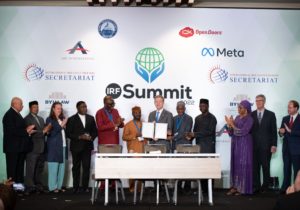The US’s disastrous exit from Afghanistan two years ago was a failure and a disgrace. Our troops left, the Taliban immediately regained control, and now the country is experiencing a dire humanitarian crisis. Staggering unemployment, a floundering currency, and dramatically rising food prices have nearly half of the country’s population on the brink of starvation. This is not even mentioning the near-overnight erasure of 20-years of women’s rights progress.
The US’s exit strategy, hardly strategic, was an irresponsible embarrassment. Rather than follow the sensible, proven model of leaving a small number of troops in the country as a stabilizer, which the US has done in Korea, Germany, and Japan, the administration prioritized the political optics of a complete withdrawal prior to the twentieth anniversary of the September 11th attacks – effectively handing Afghanistan back to the Taliban on a silver platter. However, if it’s possible, even more shameful than the US’s disastrous exit was the mass abandonment of Afghans who worked alongside US troops, leaving them under the thumb of a regime which regards them as traitors.
The Wall Street Journal’s recent profile, Hunted by the Taliban; Ignored by Washington, highlighted the life of Jawed, an Afghan employed as a translator for US Special Forces in 2012. Jawed accompanied and assisted soldiers on numerous missions and raids – including one where his translations revealed that the troops he was assisting were surrounded and needed to call for air support, likely saving the troops’ lives. His supervisors recalled him to be disciplined and trustworthy.
But under Taliban control, Jawed now lives like a shadow in his own country. He’s forced to spend most of his time inside his apartment and disguises himself on the rare occasions when he does go out. Employment has been challenging, as he risks being identified. United Nations reports have shown his fears are justified. Many with backgrounds like Jawed’s have been arrested and killed.
The US foresaw this risk, and in 2009, the Afghan Allies Protection Act was passed to provide an expedited immigration process for individuals like Jawed who:
“Provided faithful and valuable service to the U.S. government, ISAF or successor mission as documented in a positive letter of recommendation; and experienced or are experiencing an ongoing serious threat as a consequence of employment.”
Yet, Jawed and thousands of other applicants continue to wait with no end in sight, while fearing for their lives, safety, and the safety of their families.
In Iraq, my husband was a Captain with the US Army Special Forces. The translator who accompanied his twelve-man team was vital to their mission. This close partnership enabled the team to maintain relationships throughout the Area of Operation, act on real time intelligence, and work with the host nation forces. Their translator and the value he added was critical to mission success. Without him, the team would have lacked access to important local leaders and thus been unable to fulfill their mission directives. His translations resulted in intel that altered strategies and saved lives. Over their year-long deployment, my husband’s team avoided casualties and combat related injuries; on several occasions, this can be directly attributed to information obtained through their translator. In other words, thanks to the translator’s work, my husband and his team’s eleven other members were able to effectively fulfill their mission and make it home safely to their families. Oh, and by the way, their translator now lives in Texas.
But back in Afghanistan, as the last US aircraft lifted off, thousands of individuals who aided our efforts and kept Americans alive were still on the ground. They were now back under the thumb of the one of the most repressive regimes in the world. America got what it needed from them, compensated them poorly, and abandoned them with targets on their backs. Woe to those who trust America to act justly, to abide by the values it espouses.
Yet, despite bi-partisan support to extend the deadline and increase the quantity of visas available under the Afghan Allies Protection Act, bureaucracy and the closure of the US Embassy in Afghanistan has choked the program to a halt. So, many, like Jawed, wait and hide and pray that they won’t be recognized, arrested, or killed.
Unfortunately, this verse of America’s exploitation song is still being written; the ultimate cost remains untallied. But unlike the US troops and aircraft who were able to leave Afghanistan, the thousands of Afghans who assisted us lack the same luxury. In the two years following our exodus, USCIS has failed to prioritize these Afghan allies with a fraction of the urgency that the State Department prioritized its own exit. And as it has since its inception, the United States is repeating its shameful pattern of opportunistic exploitation.
“Do not merely look out for your own personal interests, but also for the interests of others.” Philippians 2:4






 Sponsor a student for Christianity & National Security 2024
Sponsor a student for Christianity & National Security 2024